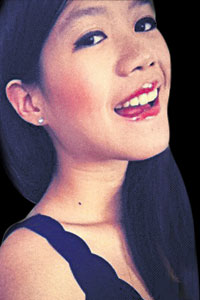I once had an investment banker friend from Hong Kong who was obsessed with Drake, liked to use the term "thug lyfe" and made questionable fashion choices because of his affection for Kanye West. He was the first straight guy I met who wore a form-fitting T-shirt that was long enough to be a dress. With his obvious affinity for all things hip hop, it couldn't have been more "him" when he Whatsapped me using certain emojis. Namely, the black hand, giving a thumbs-up sign.
My first reaction was that I bursted out laughing and I clearly remember the moment: he was the first person who sent me a dark-skinned emoji and that one little picture couldn't have captured any better how I knew he fantasised about being black. It was funny, plain and simple, for the fact that he used an emoji that looked nothing like himself to represent his feelings.
It may seem like the world's most trivial thing that I am discussing this and writing an entire column on it, but as BBC's video suggested last week, emojis are no small matter.
In the short 1.22 minute video released on BBC's website last Monday, Victoria Princewill says that white people using dark-skinned emojis is akin to "digital blackface". As I am writing this, I am kind of wishing I was making it up, but I'm not, as Princewill goes to great lengths to discuss how using GIFS of dark-skinned people with over-the-top emotions is the 21st century's version of blackface and cultural appropriation.
The video first explains that blackface is "when a non-black person uses make-up to blacken up", set against historical footage of blackface minstrel shows. These minstrel shows, which had white actors wearing blackface, were either comic skits, action stunts, variety acts, dance or musical performances to depict black people in a negative or mocking manner. According to the video, they also "exaggerated black people's facial features and their expressions".
It's obvious that minstrel shows are racist. But the argument that Princewell makes is that white people using dark-skinned emojis and GIFs and their exaggerated expressions is wrong because "black people are not here for other people's entertainment", as they are not "symbols of excessive emotion". It's kind of ironic that all the GIFs that were used as examples were literally all professional entertainers whose jobs are to entertain us, be it Michael Jackson, Beyoncé, Rihanna or Oprah Winfrey.
Cultural appropriation, which means paying little respect to someone else's culture and using it however you please as stated in the video, is a thorny issue I'm still struggling to comprehend, but I'd like to think that using one dark-skinned emoji hand does not equate with making a racist show that lampooned a whole group of people as all the bad things you can imagine.
The video apparently says that choosing to do so is because of the sexy, sassy and street implications that come with it -- this being a two-dimensional personality that the writer would rather not want to be seen having. I don't know what Investment Banker was thinking when he used his emojis, but my own reason for using dark-skinned emojis, too is because no one else I know uses it and I have always had a weird complex where I go out of my way to be different. Also, it is all for aesthetic display purposes as the unnatural, bright yellowness of the Simpsons line makes me feel queasy and all the other white to tanned ones don't really strike my fancy.
Who knew that this increasingly universal language of emojis could carry so much weight. Back in May, it was a reason for celebration for indigenous Australians when Twitter finally created the Australian Aboriginal and Torres Strait Islander flags so they could have a symbol to represent themselves.
However, with the BBC's argument of why it's not okay to use dark-skinned emojis and GIFs, I am slightly confused if Investment Banker and I even factor under that, since we aren't white. Is it okay for Asians to use it since we don't have a history of owning African slaves?
It all seems like such a shame that when there were just Simpsons-yellow ones people complained about it not embracing diversity, but now that there are a whole range of colours to choose from, it seems like there's an issue that only certain groups can use them appropriately. It's a good thing that there's more space to discuss "issues" today on all sorts of platforms, but there's a difference to doing that and being downright nitpicky and getting offended by every petty thing on this planet.
If you think this issue was also a waste of time to dissect, I will admit that I probably would have preferred to use this space to review The Emoji Movie, but the thing is, it doesn't hit the cinemas until the end of the month.
Parisa Pichitmarn is the editor of Muse for The Bangkok Post.
